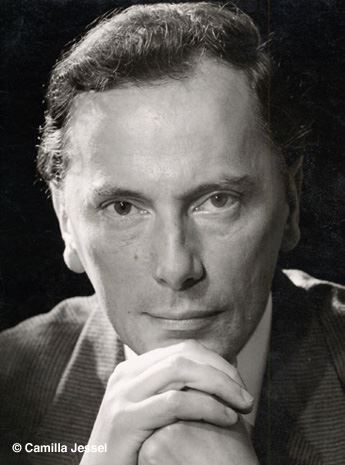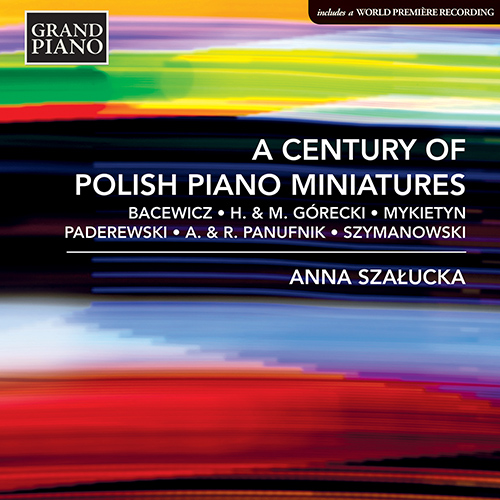
Andrzej Panufnik (1914 - 1991)
Born in Warsaw, Andrzej Panufnik started to compose aged nine. He graduated from the Warsaw Conservatoire with Distinctions in composition and conducting, increasing his classical repertoire as a favoured pupil of Felix Weingartner at the Vienna Academy, then studying impressionist composers with Philippe Gaubert in Paris, with further music explorations in London. At the outbreak of World War II he returned to Warsaw to look after his parents. In Nazi-occupied Poland, with public concerts banned, he played the piano in “artistic cafés”, collaborating with Witold Lutoslawski, and with his Jewish violinist friend Tadeusz Geisler until the Ghetto was enclosed. Despite the terror on the streets of Warsaw, he also conducted illegal and charity concerts, and composed resistance songs, including the famous Warszawskie Dzieci. During the War he lost most of his closest relatives, and all the compositions of his first 30 years were destroyed in the 1944 Warsaw Uprising.
After the war, Panufnik became chief conductor of the Kraków Philharmonic and then the Warsaw Philharmonic, appearing as a guest conductor with the leading European orchestras. In those early post-war years he won international admiration and honours in his own country, the originality of his 1940s works placing him as the “father” of the Polish avant garde. After 1949, however, with the imposition of Soviet Socialist Realism, the situation changed dramatically. Stultified as a composer, unwilling to write the music the authorities required, in 1954 he left Poland as a protest against the controls over creative artists, resulting in total censorship of his name and his music for 23 years. He settled in England, Boosey & Hawkes became his publishers, and from 1957 to 1959 he was appointed musical director of the City of Birmingham Symphony Orchestra, his last official position before deciding to dedicate his life entirely to composition. He took British nationality in 1961. At last unfettered by politics or conducting, the subsequent years became the most freely creative of his life.
Eventually, from 1977, Panufnik works were performed annually on the insistence of the Polish composers in the ever-innovatory Warsaw Autumn Festival. In 1990, when democracy was restored, he made a momentous return to Poland to conduct his music at the Warsaw Autumn. Panufnik’s autobiography, Composing Myself, was published in 1987. He received a British knighthood in January 1991, the year of his death, and a posthumous Order of Polonia Restituta from President Lech Walesa in Poland.
Panufnik’s oeuvre includes ten symphonies, with centenary commissions from Solti in Chicago and Ozawa in Boston, and three commissions from the London Symphony Orchestra who also recorded much of his work. Menuhin commissioned his Violin Concerto, Rostropovitch his Cello Concerto (with the LSO), the Royal Philharmonic Society his Ninth Symphony. As well as four concertos, he composed three string quartets, three cantatas and many works for string ensembles. Choreographers of his music include Martha Graham and Kenneth MacMillan.


 Grand Piano has gained a reputation for producing high quality recordings of rare keyboard gems. Dedicated to the exploration of undiscovered piano repertoire, the label specialises in complete cycles of piano works by many lesser-known composers, whose output might otherwise have remained unknown and unrecorded.
Grand Piano has gained a reputation for producing high quality recordings of rare keyboard gems. Dedicated to the exploration of undiscovered piano repertoire, the label specialises in complete cycles of piano works by many lesser-known composers, whose output might otherwise have remained unknown and unrecorded.






